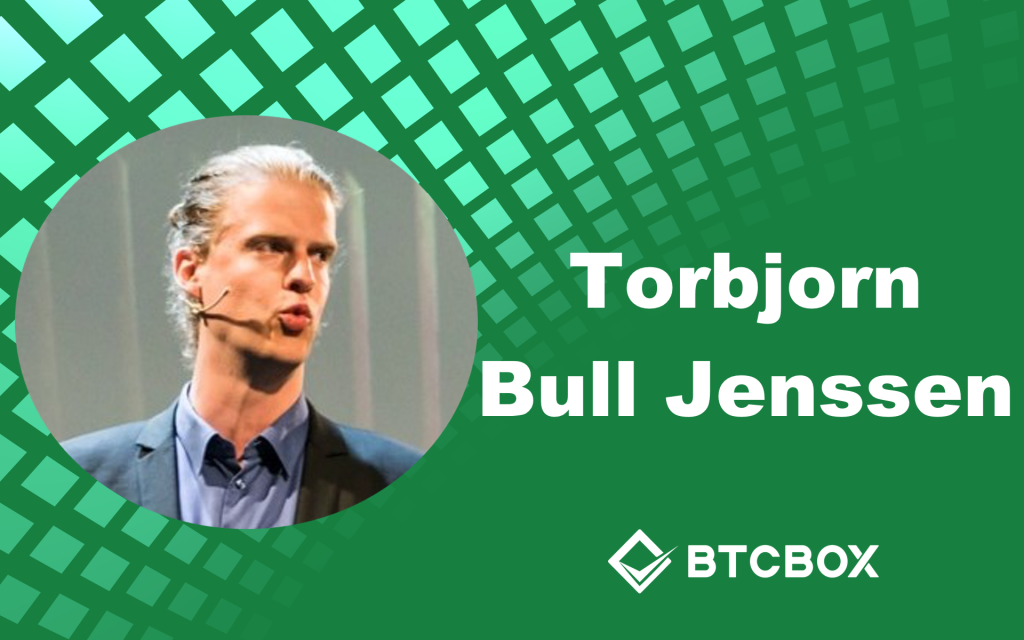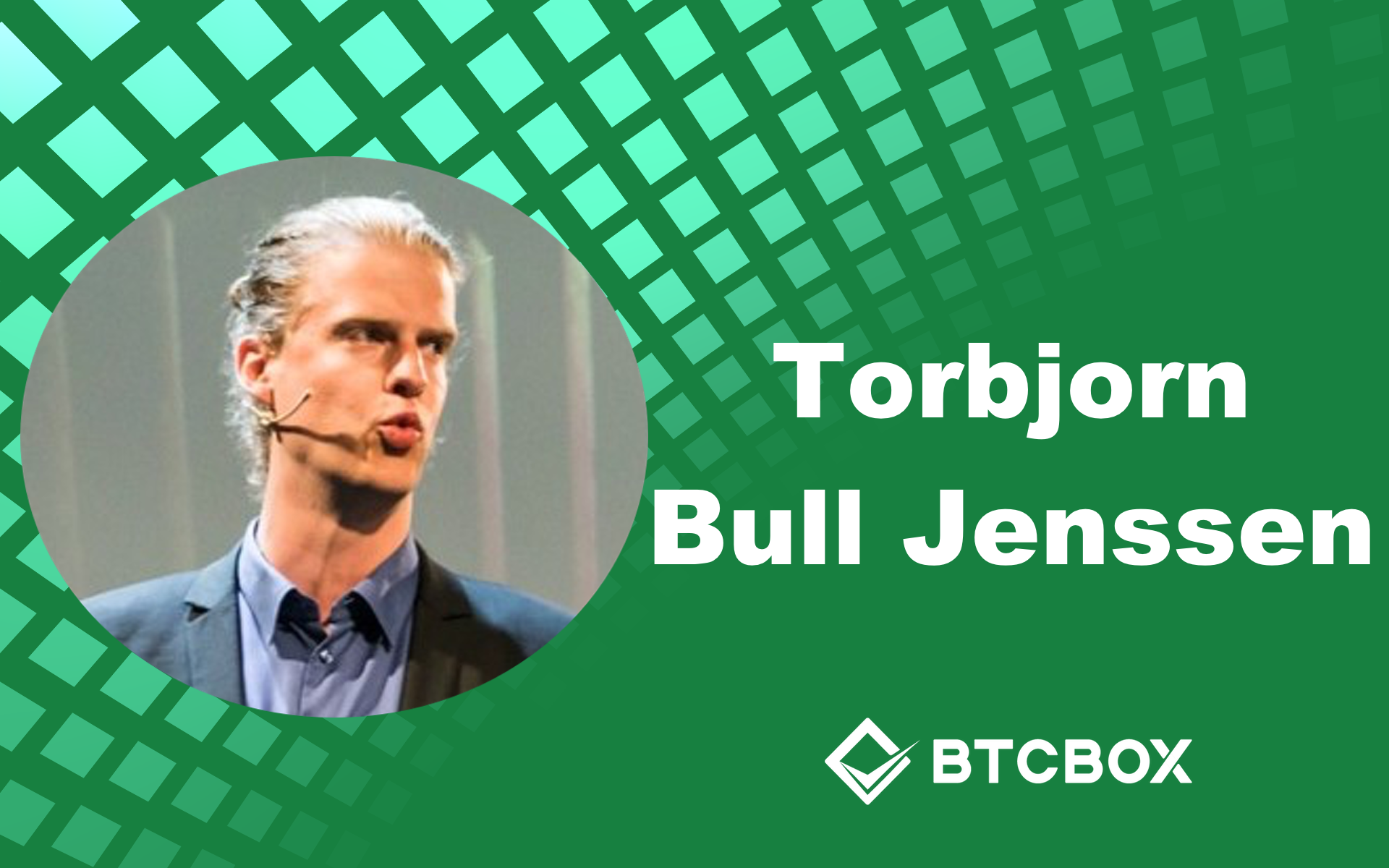
Torbjorn Bull Jenssen is the leading specialist on Bitcoin and blockchain in Norway and a popular public speaker. He has an MSc in Economics, did his theses on Bitcoin in 2014, and has consulted agencies such as the Office of the Prime Minister, the Norwegian Central Bank, and the Norwegian Ministry of Finance, also companies in the financial and tech industry.
Interview Date : 13th August 2020
Oslo University and SOAS Student, Now CEO of Arcane Crypto
I am an economist by education, and I was studying at the University of Oslo. At the University of Oslo, the economic study was pretty conservative and orthodox. I felt like there must be something more, so I searched around and came across the SOAS University of London. Rather than only teaching mainstream economics, they were teaching different schools of thought as well, and that was very interesting to me. I ended up doing my whole 4th year as an exchange student at SOAS. Several professors taught us how to be critical and think to think about the role of money in society. What makes something money, and what makes it special? How is it interacting with power structures? In other words, how can we understand and analyze money as a social phenomenon?
All of this was new to me. Even though I had monetary economics at the University of Oslo, in mainstream economics studies, there is no money, only interest rates. Money is only viewed as a veil over the so-called “real economy” or as oil in machinery. It has to be in the right amounts, not too little and not too much, or it will not work. However, in reality, the complexity of financial constructs like money and credits is important, and money is anything but neutral in the economy. I found these ideas really fascinating, so I fell into the rabbit hole and started reading up different schools and theories about money and credit.
Around the same time, a friend of mine pitched bitcoin to me as an investment. At that time, I dismissed it as it looked like something between a scam and a tool for illegal activities. Nevertheless, I guess it piqued my interest. So, when I started looking a little closer into Bitcoin, I realized that it could be a great case-study. Most authors who analyze and write about money, look back in time and investigate archaeological findings, etc. They try to understand how money emerges because new forms of money appear so seldom. With bitcoin, however, this could be studied now and in real-time. Someone clearly viewed this as a new form of money, and it clearly had an exchange value, without having a use-value. I was sold, this would be a case study that I would look into. I did my thesis on bitcoin, trying to apply these different schools of thought, to shed light on what is bitcoin in the context of “what is money”. Through this process, I fell into the bitcoin rabbit hole and started digging around, and I’ve been there since.
I consider myself really lucky that I discovered bitcoin. I started to read about it in 2012-2013, and at the time, I felt that I was late to the party. So much had happened, and things were moving really fast. Now I realize that it was really early and that the development has only accelerated. The benefit of being early was that there were not too many crappy, easily readable articles out there that were full of misinterpreted logic. Instead, I was forced to dig deeper and read more technical and heavy articles and discussions. That gave me the basics of understanding this technology. As the years progressed, there were different hypes about all the different altcoins and enterprise blockchains. Looking at some of those hype cycles, and having a deeper understanding of it helped me navigate to understand what makes sense and what doesn’t in the space.
Did You read the White Paper by Satoshi Nakamoto?
I read the white paper by Satoshi Nakamoto and it is only 8 pages. If you have studied economics, then the paper is pretty straight forward to read. Also, cryptography’s math is almost the same type of math as in advanced economics. I am not a programmer, but understanding and analyzing the architecture of a crypto-economic system was something that came relatively naturally to me. It is very much built around economic axioms, cryptographic tools, network effects, evolution, and emergence. You combine it into a larger architecture, which is exactly how (some) economists work and think. It felt close to what I learned from my studies.
How did you proceed with your career after coming back to Norway?
I randomly ended up writing an article for a newspaper about bitcoin during the big hype in 2013. Some journalists had reached out to professors at the University of Oslo to do an article about Bitcoin. The professors directed them to a Ph.D. student, and the Ph.D. student reached out to me. None of the professors knew about bitcoin at that time. I ended up writing about Bitcoin and later was invited to live tv for a debate. From there, I rather quickly became known as the “bitcoin expert”. Radios, newspapers, and companies started reaching out to me. But Bitcoin collapsed in 2014, and it got very quiet. I just continued reading, and professionally, I started working for a consultancy firm. I chose that job because it was research-oriented, and there were no job openings for someone to work at Bitcoin-related fields in Norway.
However, in 2016~2017 the interest and the hype came back, amplified. I started to combine bitcoin and work because I started to get paid consultancy, facilitating workshops and presentations. After all, everyone wanted to hear about it. I had a meeting with the prime minister even in 2016 talking about this, as well as banks, labor unions, student organizations, FCI, tech companies, etc., the whole spectrum. Everyone wanted to hear about it, and I loved talking about it, it was exciting.
How has the Norwegian crypto community grown?
Back in 2011, Strule Sunde, who is like a legend in the crypto community in Norway, started to sell bitcoin through local bitcoins and his homepage and communicated with the buyers through IRC chats. IRC’s are the old chatting apps, and he has been serving Norway with bitcoin liquidity, exchanging between Norwegian Krone and BTC ever since. He has been in a big court case, suing Nordea, which is the biggest bank in Norden, for shutting down his account only because he was dealing with bitcoin. So, he was helping a lot of people get on board with it. Many people that were tech-enthusiasts also started to mine as soon as they read about it on e.g. Reddit. Many of them tested out some mining strategies using a GPU, or just an ordinary CPU on their computers.
There was another guy called Andreas Brekken, who found a cryptocurrency exchange called Justcoin. They grew very fast before they got problems due to banks shutting down their accounts. The banks would just say “we don’t like crypto, so no account for you” and they would just kick you out.
The crypto community in Norway is a relatively fast-evolving and active space. One interesting thing with that community is, as the years passed by, and bitcoin started forking, many of the first people who discovered bitcoin went to BCH bitcoin cash. Later, some of them changed to Bitcoin SV. Thus, even the communities have been forking. At the same time, there are a lot of new people who have been joining the broader bitcoin and crypto community, especially after 2017. So, it has been an active community for a long time. I am living in Oslo, so it is much easier to establish a community here than in other places in Norway. However, I know that there are smaller crypto communities in other cities as well. Also, there are a lot of individuals who are joining international communities, because they are living in remote areas.
Is it easier for Norwegians to participate in groups outside of Norway?
Norwegians don’t have any issues with the language barrier of speaking English. All foreign movies, and almost all the content on the internet, which young people are consuming, is in English. Everyone has a smartphone and unlimited data to use. So, it is very easy to go on the internet and interact with different communities. Also, by just being such a small country, we are almost being forced to do so.
What draws you and other Norwegians into the crypto space?
For me, it’s the exciting possibilities emerging with a completely new paradigm for digital interaction. Bitcoin is pretty much a fundamental 0 to 1 innovation. Before bitcoin, you could not transfer and manage value without an intermediary over the internet. That was true for payments, and for the management of digital identities or access to content, for instance. Thus, the internet that enables open and free distribution of information has been centralized around these intermediaries. However, from the day when Satoshi released his white paper, it made it possible to manage value without an intermediary. So, it is a paradigm shift, that I have a fascination for, which evolves over time, and that keeps changing and adapting.
For others, there are probably as many reasons as there are people. Some do a lot of mining due to cheap electricity and natural cooling. You have technical universities where people are drawn to be on the front line of applied cryptography and technology from an academic and technical side. Then you have the gamblers. Lastly, you have the ones who see this as a tool to do good for the world, to do more efficient remittances, and to have a democratization of access to finance. Even though we don’t have an issue with that within Norway, the world is an immense place. There are more people outside of Norway, and their circumstances affect us, so we have to care.
The technology is so freeing and makes it possible to take full control over your own money and digital life, that is the promise of the technology. However, thus far in my life, it’s not anything I personally have needed. I am more than well enough served by the traditional financial system we have here in Norway. I have used bitcoin for payments, investing in solar panels, and getting a lease from South Africa monthly for tiny amounts that wouldn’t work with the traditional financial system. Nevertheless, this was not something I really needed for my own sake. I just wanted to explore the possibilities with Bitcoin. The interest for me is not from my own needs, but it is trying to understand what is beyond one’s understanding. How will this evolve? What possibilities and challenges will it unleash?
Interviewer , Editor : Lina Kamada
【Disclaimer】
The Article published on this our Homepage are only for the purpose of providing information. This is not intended as a solicitation for cryptocurrency trading. Also, this article is the author’s personal opinions, and this does not represent opinion for the Company BTCBOX co.,Ltd.


